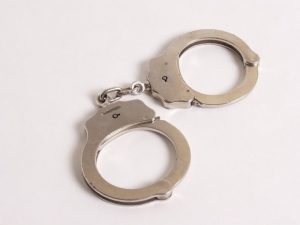Last month, the newly-formed Conviction Review Unit in Broward County convinced a South Florida judge to free a man convicted 16 years ago of robbery and sentenced to life in prison. Prosecutors working with the CRU told the Broward County Circuit judge that they likely would be unable to gain a conviction today, given numerous evidentiary issues with the case, including the reliability of witnesses and an alibi that jurors never had an opportunity to hear.
An assistant state attorney leading the CRU told the judge it’s not even clear how the defendant was identified as a suspect, given that there was no physical evidence, no witnesses knew him and the only thing that lead police to him was an apparently questionable search through the TRAP program, a previously-used database of prior offender mugshots in a given area.
Broward County has one of the highest rates of false convictions in Florida. The National Registry of Exonerations notes more than 2,500 cases nationally of convicts later found innocent. More than 80 of those are from Florida and nearly a dozen in Broward.
This latest case underscores the fact that miscarriages of justice happen far more than people might assume – and far more often than they should. The importance of working with an experienced Broward County criminal defense lawyer early on in the process cannot be overstated.
How Wrongful Convictions Happen
Criminal defendants in Florida are presumed innocent until proven guilty beyond a reasonable doubt. That is the highest burden of proof recognized by our courts, and ideally, no one would ever be convicted of a crime they didn’t commit. However, evidence that might seem convincing on the surface can turn out to be less than rock-solid. Traumatized witnesses can be mistaken. Confessions can be coerced. In some cases, evidence that should be suppressed is not while evidence that should be presented to jurors is missing or denied.
The Sun Sentinel reports that of the 11 wrongful convictions in Broward County:
- 4 involved mistaken witness accounts.
- 5 involved false confessions.
Oftentimes, wrongful convictions stem from something called confirmation bias, wherein people’s perspective on things that happen conform to shape their beliefs, rather than the reality of the situation. Sometimes, confirmation bias can be incredibly powerful, and has resulted in convictions based solely on faulty eyewitness testimony – even when there is overwhelming evidence to the contrary.
False confessions are among the most problematic of these issues. They can occur due to police brutality, fear or possibly even mental illness. But confessions can be difficult to retract once they’re on record. This is why it is imperative that you speak to a lawyer BEFORE you agree to police questioning – for any reason.
About the Conviction Review Unit
Conviction review units, also sometimes called conviction integrity units, are relatively new. In addition to Broward, prosecutors in Orlando, Tampa and Jacksonville have similar teams. An estimated 2,300 prosecutors’ offices nationally have created such units, which have announced dozens of exonerations over the last several years.
While the CRU’s goal is a positive one, the fact is those wrongly convicted often pay a heavy price. Some are incarcerated for decades prior to exoneration. It’s far better if at all possible to avoid conviction in the first place by working with a dogged criminal defense lawyer who is skilled, experienced and will tirelessly defend your rights.
Call Fort Lauderdale Criminal Defense Attorney Richard Ansara at (954) 761-4011. Serving Broward, Miami-Dade and Palm Beach counties.
Additional Resources:
Convict serving life in prison for armed robbery could be set free, April 13, 2020, By Rafael Olmeda, The Sun Sentinel
 Fort Lauderdale Criminal Attorney Blog
Fort Lauderdale Criminal Attorney Blog


